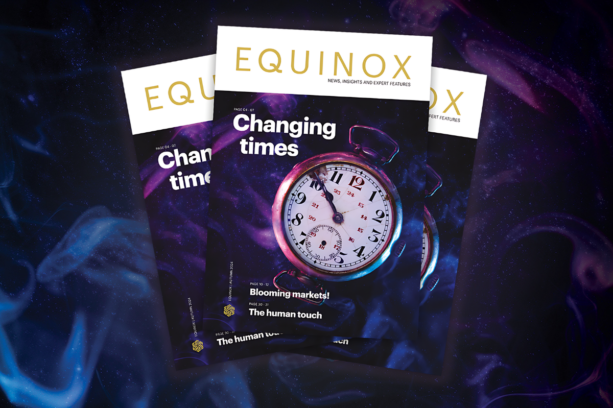The year is 1988 when the UK government set about introducing ‘polarisation’ into financial services. This may not be a concept that many remember. It came amidst a decade when interest rates, having peaked in the early 1980s at 16%, were at their lowest point in nearly a decade at just over 7%, and marked a permanent shift in the landscape for receiving financial advice.
Polarisation created the role of the independent financial adviser (IFA) who could give advice on a variety of products from various providers, rather than being limited to the bank or insurance company they worked for. This was revolutionary, as clients would no longer be limited by the offerings of the ‘man from the Pru’ as an IFA could offer the whole range to clients. In essence, the corner shop had evolved into a supermarket!
Regulation was put in place to ensure that IFAs met strict competency requirements (although not as stringent as they are today), including conducting thorough fact-finding to understand a client’s financial situation, preferences, and goals.
This marked a significant departure from the past, where advice may have been given without a comprehensive understanding of the client’s needs.
Back to the future
Fast forward to 2024 and the evolution of financial services has been transformative, but in bringing greater options, has this created confusion?
Recently, it has become increasingly difficult to work out the difference between IFA, restricted adviser, wealth manager, asset manager, financial planner, and investment manager!
In January 2020, we at Equilibrium sought to bring clarity to our proposition by renaming Equilibrium Asset Management to Equilibrium Financial Planning. The simple reason was that the term ‘asset management’ was not the true picture of what we had evolved into doing for our clients.
Although undoubtedly, we manage assets, our passion is to make people’s lives better through tailored planning, so the name change is definitely more reflective of our purpose.
When it comes to giving a holistic service, the terms independent financial adviser (IFA), wealth manager and asset manager, generally refer to an individual or a business that will give financial advice in some form or other. An IFA, in particular, can offer a wide range of services to help you manage and plan your finances, with the ability to recommend products from the entire market.
The main outlier in terms of service is that of the investment manager whose sole focus is as the title suggests, to manage your investments. Investment managers are qualified professionals who tend to work for institutions, managing hedge funds, mutual funds, pension funds, or trust funds and are also referred to as ‘fund managers.’ Their main aim is to provide investment returns consistent with the goals of the fund or portfolio by making buy, sell, and hold decisions within.
Unless you are a ‘DIY’ investor, the decision of which fund a client should invest in rests with the financial planner. This should be akin to the client’s short/medium/long term objectives, tax status, retirement aspirations and how they want to help their family during their lifetime and beyond.
An investment manager may have an objective, for example, to return 5% per annum above the Bank of England base rate over a 5-year period, whilst holding a minimum of 80% in equities. Whilst that sounds great in principle, the investment manager is making these calls based on the here and now, with a soulless objective. It is therefore the financial planner’s role to ensure the fund has a place in the client’s cash flow planning process.
Although the fund’s goal may appear attractive to many, a financial planner may decide, based on their expertise, that this fund is too risky because of the possibility of large losses and the potential danger should funds be required in the short term. Conversely, if this investment was for an 18-year-old into their pension, it may be deemed not high risk enough, given the time horizon until they can access the proceeds.
Tax is also an important consideration as to where to invest. The financial planner will consider which tax wrapper may be best to hold a specific investment fund based on the client’s personal tax position, such as using ISA allowances for higher risk investments and/or if they are already using their capital gains tax allowances elsewhere.
In essence, the financial planner acts as a GP, prescribing the best financial ‘medication’ based on individual circumstances, while the investment manager administers the specific ‘medication’ to achieve a targeted outcome. At Equilibrium, the focus is on ensuring that financial health is intertwined with overall wellbeing, creating a holistic approach to financial planning.
If you would like to speak to one of our friendly specialists, please get in touch as we are here to help. If you are new to Equilibrium and would like to speak with one of our experts, contact us here or call us on 0161 383 3335 for a free, no-obligation initial chat.
Clients can reach us on 0161 486 2250 or by getting in touch with your usual Equilibrium contact.
This article was featured in the autumn 2024 edition of our financial planning and investment magazine, Equinox. To download your free copy, click here.
This blog is intended as an information piece and should not be construed as advice.




